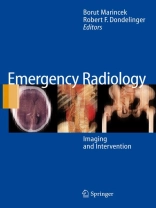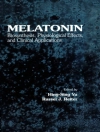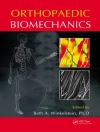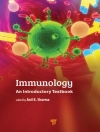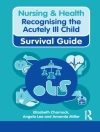Why write a book on emergency radiology? In many coun- decline. There is an increasing trend towards the use of tries, hospital emergency departments have become a MDCT to evaluate traumatic injuries and non-traumatic major part of the healthcare safety net. In the last decade emergencies. The use of workstations for reporting and for economically-driven structural changes in health care further image reconstruction becomes standard practice. delivery have caused a dramatic increase in emergency On the occasion of the European Congress of Radiology department visits. In response to capacity and staffing (ECR) 2003 and 2004 a Categorical Course on “Emergency pressures, hospitals are developing and implementing a Radiology”has been organized to assess current devel- variety of strategies designed to improve patient flow and ments and concepts in this rapidly growing field. reduce overcrowding in the emergency department. Numerous radiologists, all outstanding and international- Several factors are considered critical for success, such as ly renowned experts in their field, have made superb c- having the right multidisciplinary teams in place and opti- tributions in an ECR syllabus. These authors have now mizing the use of imaging tests. For a critical care physi- made a second effort and updated their contributions for cian it is paramount to obtain the images quickly and for this book. The chapters in the book mirror the topics p- them to be interpreted accurately. sented in the ECR course, encompassing imaging ap- To accomplish this, the emergency radiology division proaches as well as interventional aspects.
Tabella dei contenuti
Emergency Radiology: Role of Imaging.- Role of Imaging in the Management of Trauma Victims.- Role of 3D Imaging in the Emergency Room.- Traumatic Injuries: Imaging and Intervention.- Hemostatic Arterial Embolization in Trauma Victims at Admission.- Imaging and Intervention in Post-traumatic Complications (Delayed Intervention).- Imaging of Head Injuries.- Imaging of Facial Injuries.- Imaging of Spinal Injuries.- Imaging of Thoracic Injuries.- Vascular Injuries of the Thorax: Multi-Detector-Row CT and 3D Imaging.- Imaging of Abdominal and Pelvic Injuries.- Imaging and Intervention of Large Arterial Trauma.- Pelvic Fractures.- Traumatic Injuries: Imaging of Peripheral Muskuloskeletal Injuries.- Non-Traumatic Neurologic Emergencies: Imaging and Intervention.- Imaging of Cerebral Ischemia.- Neuroradiological Emergency Interventions.- Non-Traumatic Thoracic Emergencies: Imaging and Intervention.- Acute Chest Pain: Diagnostic Strategies.- CT Diagnosis of Acute Pulmonary Embolism.- CT Venography in an Integrated Diagnostic Strategy of Acute Pulmonary Embolism and Venous Thrombosis.- Imaging and Treatment of Thoracic Fluid and Gas Collections.- Non-Traumatic Abdominal Emergencies: Imaging and Intervention.- Acute Abdominal Pain: Diagnostic Strategies.- Imaging of Acute Intestinal Obstruction.- Imaging and Intervention in Gastrointestinal Hemorrhage and Ischemia.- Imaging and Intervention in Sepsis.- Non-traumatic Abdominal Emergencies: Imaging and Intervention in Acute Biliary Conditions.- Imaging and Intervention in Acute Pancreatic Conditions.- Non-traumatic Uroradiological Emergencies.- Non-Traumatic Vascular Emergencies: Imaging and Intervention.- Imaging and Intervention in Acute Non-traumatic Arterial Condition.- Imaging and Intervention in Acute Venous Occlusion.- Management of Occluded Hemodialysis Shunts, Grafts, and Venous Access.- Imaging Pediatric Emergencies.- Pediatric Neurological Emergencies.- Thoracic Emergencies.- Pediatric Emergencies: Non-traumatic Abdominal Emergencies.
